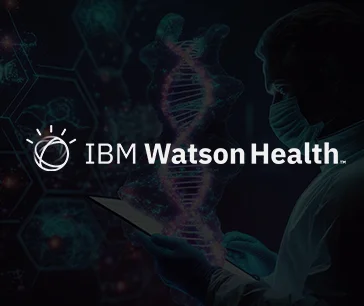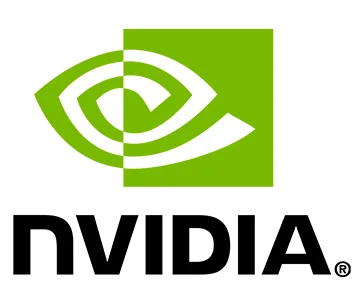Generative AI in Healthcare: Fostering Creativity and Innovation

Generative AI is a cutting-edge technology that holds immense potential for revolutionizing various fields, including healthcare. Unlike traditional AI systems that rely on predefined rules and patterns, generative AI has the unique ability to create new content and solutions autonomously. This capability has sparked significant interest and discussion within the healthcare community due to its potential to drive unprecedented innovation.
Furthermore, generative AI is important for several reasons. Firstly, it encourages creativity by enabling the generation of novel solutions and content that may not have been previously conceived. In healthcare, this could lead to the development of new treatments, diagnostic tools, and patient care strategies.
Secondly, generative AI facilitates a paradigm shift by pushing the boundaries of what was once considered possible. By leveraging advanced algorithms and massive datasets, generative AI has the capacity to uncover insights and patterns that may have eluded human researchers, leading to breakthroughs in medical research and patient care.
Moreover, generative AI is valuable for its ability to forecast patient outcomes. By generating synthetic patient data, researchers can simulate various scenarios and predict how diseases may progress or how patients may respond to different treatments. This not only enhances our understanding of disease dynamics but also enables more personalized and effective healthcare interventions.
Healthcare before AI
Before the advent of AI in healthcare, medical record summarization and report generation were often time-consuming and labor-intensive tasks. Healthcare providers had to manually sift through extensive patient records to extract relevant information, which could be prone to errors and inconsistencies. This process not only consumed valuable time but also detracted from the quality of patient care.

Furthermore, patients often faced challenges in accessing timely and accurate information about their health conditions and treatment options. Traditional healthcare systems lacked efficient mechanisms for patient engagement and support, leading to frustration and confusion among patients seeking guidance and assistance.
What Challenges has AI Solved in Healthcare?
The introduction of generative AI, powered by Natural Language Processing (NLP) models, has addressed these challenges by automating and streamlining various aspects of healthcare delivery. AI-driven medical record summarization and report generation tools can quickly and accurately extract key information from patient records, enabling healthcare providers to make more informed decisions in less time.
Moreover, chatbots and virtual assistants fueled by generative language models have transformed patient support services by providing round-the-clock access to reliable healthcare information and assistance. Patients can now receive personalized responses to their queries and concerns, enhancing their overall healthcare experience and empowering them to take a more active role in managing their health.
Key Innovators, Researchers, and Companies in Generative AI
Prominent entities shaping the landscape of the healthcare industry through Generative AI include IBM Watson Health Corporation, Amazon, Microsoft, Open AI Inc., Google LLC, NVIDIA Corporation, Abridge AI Inc., Syntegra, InSilico Medicine, and Oracle. These market leaders have strategically propelled the sector's growth with a spectrum of recent initiatives. Noteworthy strategies encompass product launches, aimed at introducing cutting-edge solutions and technologies. Additionally, strategic acquisitions have played a pivotal role, enabling key players to fortify their positions and broaden their technological portfolios.
Investments in research and development have been instrumental, fostering innovation and pushing the boundaries of Generative AI applications in healthcare. Collaborative partnerships have emerged as a prevalent strategy, facilitating synergies between technology giants and healthcare experts to create comprehensive solutions. Furthermore, active involvement in clinical trials showcases a commitment to ensuring the efficacy and safety of Generative AI applications in real-world healthcare scenarios. Through these diverse strategies, the key players are collectively steering the industry toward accelerated growth and transformative advancements.

Recent Breakthroughs and Challenges
One of the recent breakthroughs in the Generative AI in healthcare includes the recent launch of BioNeMo Cloud Service by NVIDIA Corporation in March 2023. This product makes the generative AI models easily accessible through a browser-based interface for interactive inference and protein structure visualization. Further, by pairing BioNeMo with the supercomputing resources in NVIDIA DGX Cloud, researchers can customize their models on a fully managed software service utilizing NVIDIA Base Command Platform and the NVIDIA AI Enterprise software suite.
There are a few limitations associated with generative AI models which can lead to less adoption of such novel technologies. Generative AI models require large amounts of data to train and this data can be difficult and expensive to obtain, especially in healthcare. Furthermore, generative AI models can be biased, which means that they may not be accurate for all populations.
What is the current level of adoption?
More than 50% of the healthcare companies globally have planned to adopt generative AI models in their organization. The adoption will be intended to free up more time for clinicians so they can spend more quality time with patients. These includes capturing clinical encounters and summarizing interactions such as past medical histories and health recommendations, providing patients with tailored educational materials and follow-up care recommendations, and reducing wait times by identifying patients most in need of care and targeting them with personalized coaching.

Potential Future Capabilities
The future holds a promising era for generative AI in the healthcare industry. The potential of generative AI in applications such as early disease diagnosis, robotic surgery and robotic assistance, medical imaging and diagnosis, drug discovery, real time prioritization and triage as well as AI powered telemedicine will be the key factors for increased adoption of such novel technologies throughout the healthcare settings.
Further, according to a report by Deloitte in 2023, Organizations can start to implement generative AI activation strategy from multiple starting points. The major factor is to rethink how to frame the challenge and desired outcome, taking a problem-first, technology-second approach, rather than a technology-first, problem-second approach. Deloitte has proposed a five-part approach to actualize generative AI with a set of its AI offering i.e. Trustworthy AI. The company proposes to consider the offering within the client’s business, wherein organizations can begin in any of the five areas and pursue parallel progress to get maximum results.
- Infuse AI into the organization
- Establish an AI operational foundation
- Develop an AI infrastructure plan
- Initiate experimentation and pilots
- Develop production-ready solutions and operational systems
As this technology is still in its growing stages, there are many concerns related to generative AI which can lead to the degrowth of the market during the analysis period. For instance, privacy concerns, bias, higher costs, maintaining ethical use of AI-generated content, inaccurate and made-up results are the few restraints/challenges related to generative AI in healthcare market. Dive deeper with AMR insights on the topic. Get in touch with our analysts.



